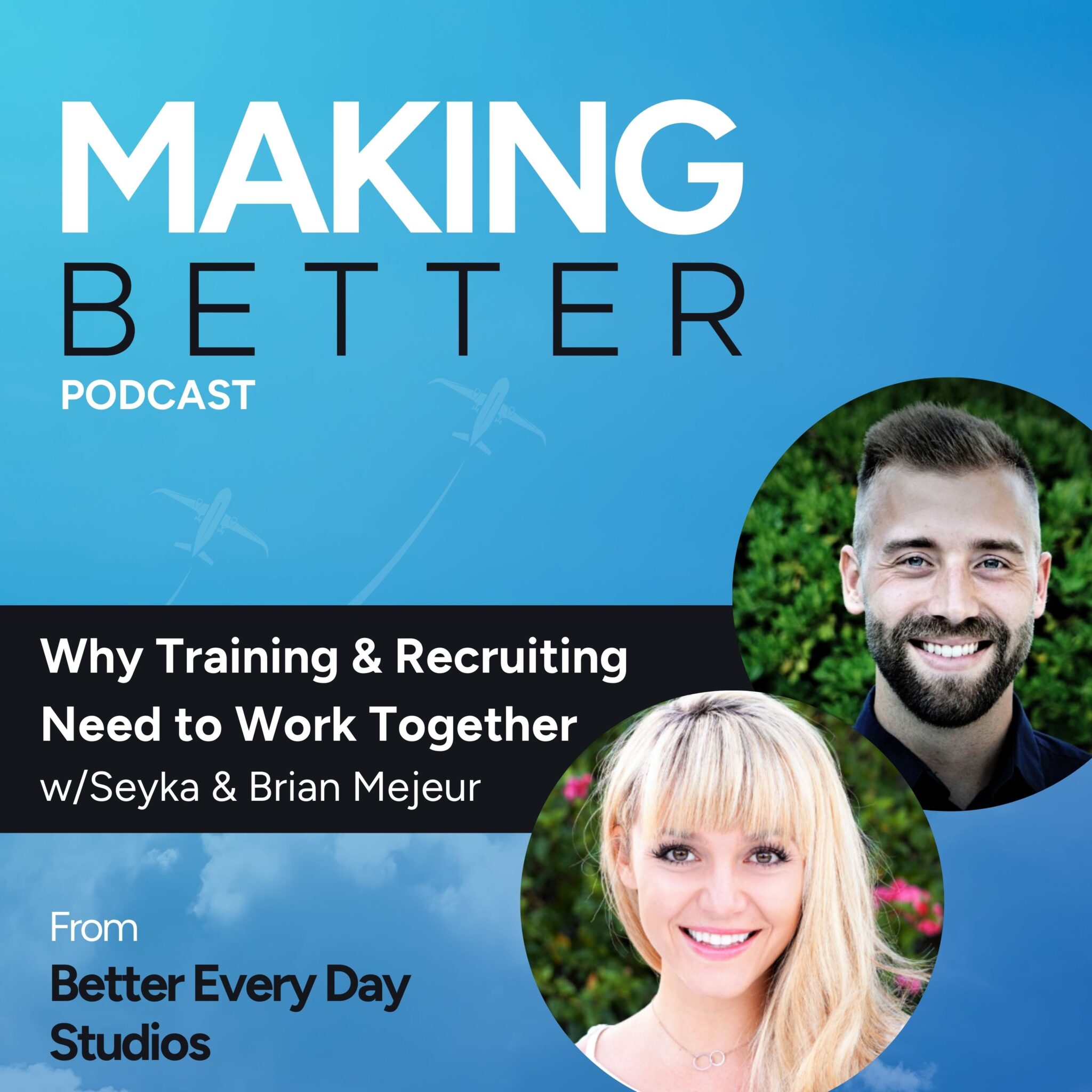
Seyka Mejeur
Founder and CEO of AdAstra Talent Advisors
If you like the content from this article, I’m sure you’ll love the rest of the content I share on my LinkedIn. Make sure to connect with me and follow for more valuable content like this.
I hear a lot of disenchantment with annual goal setting around this time of year. Typically, I hear people saying things like “80% of new year’s resolutions are broken in the first month, so I don’t set goals“. I get it! There is a sea of goal setting advice out there, and it’s easy to get lost in the noise. It’s also easy to get caught in the trap of believing that a meaningful goal needs to lead to massive, immediate transformation… or that a meaningful goal requires you to act so far outside of your current habits that your day-to-day life will look entirely different from what it is now.
I offer a different way of approaching this. Not a path of willpower, blood, sweat and tears. Not a path of unreasonable expectations, written with a mindset of total transformation of your current life. Instead, I think about new year goal setting as a chance to create habits that support the lifestyle you aim to build.
What can you build into your life to be habitual that you’re supported by your neurobiology and triggers, not fighting against them?
For this reason, the beginning of the year is a time I look forward to with great glee. I use it as a time to reflect on my past year: lessons, learnings, achievements, and joys. If you’ve had a chance to read my most recent article, then you know all about how I approach this reflection process! This is my time to intentionally plan my incoming year. There are so many ways to be distracted today, I want to make sure I’m building this big beautiful life intentionally.
One of my favorite books is Atomic Habits by James Clear. I talk about this book a weird amount. It is focused on the science and psychology of habits.
Most of my 2024 goals are habits.In 2023, I mastered habits like drinking 80 oz of water a day, practicing Duolingo daily, daily journaling and more. This year, some of the habits I’m working on making effortless are drinking 60 grams of protein a day, meditating regularly, cold plunging 4 days a week, and incorporating a mobility practice once a week.
I do have some goals that are more traditional goals, and less like habits. For example, I just came out of maternity leave for my second precious son. As I work to get back to feeling like myself in my body, I have some goals like turning my 10 second handstand hover into a 20 second handstand hold, and running 2 miles in 15 min. For goals like these, I break them down into actionable habits I can do each week. How am I going to run each week? How am I going to measure success? How will I practice my handstand? Do I need a coach to support this last phase of nailing it?
If I set the goal of running 2 miles in 15 minutes without creating a plan to support myself, I could easily get to June and feel like I had already failed. But if I’m running and tracking progress weekly, I’m able to feel my progress and success throughout the year!
So, how do I use my understanding of habits to set myself up for success? Launching into a goal like “run 2 miles weekly as a part of my workout routine” without a supporting habit already in place, such as “work out every week day for 30-90 mins”, is going to feel like a big undertaking. I highly recommend starting with an attainable goal. Perhaps that habit-driven goal looks like “work out 3 days a week, ideally making one of those days a 2 mile run”. That way, you’re able to successfully accomplish the goal while having a stretch goal built in. Even better, give yourself a trigger that works for you, and pair the new habit with something that is already wired into your brain. For example, “I will work out when I wake up, before I get ready for work (timing trigger), and I won’t scroll through TikTok / watch sports / eat dinner (enter a favorite indulgence) until I workout (pairing with a high-reward habit)”.
By keeping these different pillars in mind – triggers, supporting habits, attainable goals and more traditional goals – you’ll be much better equipped to turn the stigma against new year goal setting on its head and create meaningful change in your life!
If you like this topic, check out how I review my past year and set goals for the new year, here.
And if you liked reading this, consider reviewing my other articles here:
- How to Approaching New Year Goal Setting in a Way That Actually Works
- Breaking the Chains of Mediocrity: Lessons from an MBA Student on Overcoming Mental Blocks to Pursue Your Passion
- Unlocking Success: Key Hiring Metrics Every Startup Needs to Track
- Top 10 Interview Tips for Candidates
- Biggest Mistakes Candidates Make in Interviews
- Top 3 Do’s and Don’ts of Starting a Business
- How to Get an Amazing Mentor (and Why it Matters)
- Mentorship Programs Reveal Big Wins for Companies (People Ops Pros Listen Up)
- Mastering the Art of Negotiation: Tips and Strategies for Success














